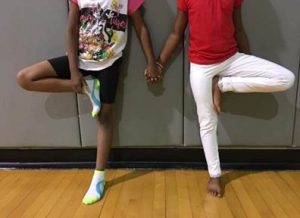
Across America, we are currently experiencing a youth mental health crisis. According to the Centers for Disease Control & Prevention (CDC), 7.1% of US children aged 3-17 have diagnosed anxiety, while 3.2% of US children aged 3-17 have diagnosed depression.[1] Mental health problems are difficult to treat when there is limited access to care for these struggling youth. In America, over 115 million people live in a Mental Health Provider Shortage Area (HPSA), meaning the ratio of providers and services to patients is inadequate to serve community needs.[2]
But there is hope and a plan to better address these needs. Social and emotional learning (SEL) is the process through which children and adults learn to understand and manage emotions, set and achieve positive goals, feel and show empathy for others, establish and maintain positive relationships, and make responsible decisions.[3]
The Collaborative for Academic, Social, and Emotional Learning (CASEL) is an organization based in Chicago with a mission, “… to help make evidence-based social and emotional learning (SEL) an integral part of education from preschool through high school.” CASEL has developed 5 competencies. They are:
- Self-awareness: Know your strengths and limitations, with a well-grounded sense of confidence, optimism, and a “growth mindset.”
- Self-management: Effectively manage stress, control impulses, and motivate yourself to set and achieve goals.
- Social awareness: Understand the perspectives of others and empathize with them, including those from diverse backgrounds and cultures.
- Relationship skills: Communicate clearly, listen well, cooperate with others, resist inappropriate social pressure, negotiate conflict constructively, and seek and offer help when needed.
- Responsible decision-making: Make constructive choices about personal behavior and social interactions based on ethical standards, safety, and social norms.[4]
CASEL’s research shows that SEL has multiple impacts for students. Students attending schools with SEL programming showed improved academic performance, better emotional well-being, and improved social behavior. Research also suggests that access to social-emotional learning training and tools can help to reduce poverty and improve participant’s life outcomes overall.[5]
What We’re Doing in Northwest Indiana
- Superhero Training & Supply
Superhero Training is an Indiana-based non-profit that was born in 2016 to help anxious students through social-emotional learning activities. Robin Sizemore, the founder, is a certified yoga trainer for adults, certified to work with youth in urban settings, and has earned a certificate in applied neuroplasticity for educators.[6] She has trained teachers in public, private and parochial schools, social workers, principals, parents, and most importantly, children about how their breath is their body’s remote control and that yoga and mindfulness can calm their anxious, depressed, angry little minds and even teach them empathy. It has spread to the college level, where Robin works with students who are trying to calm test-taking nerves. Throughout classrooms, you can catch students and teachers doing breathing exercises, yoga, and mindfulness practices.
- Morning Meetings & the Mood Meter
In addition, this year one of our local school principals has advocated for morning meetings in each classroom to encourage a feeling of a classroom community and help students experiencing trauma in their lives to feel supported and understood. There is a graph in the hallway where students can plot their emotions for the day and have a talk with a teacher about those feelings. Developed by the Yale Center for Emotional Intelligence, the “Mood Meter” has helped children name their emotions and become comfortable talking about how they feel.[7] Our students know that they are in charge of their own body and brain and they are learning the methods to bring themselves back to a regulated state.
Social Emotional Learning is still a new concept in many classrooms across the country. However, more and more research is finding evidence that this is an effective way to help students succeed. Our goal is to continue to share information on how to regulate bodies and minds with others so they know there is hope. Because there is always hope.
For more information on Superhero Training & Supply, and to find free resources on bringing SEL into your schools, go to http://www.superherotrainingandsupply .org/.


Contributors
Robin Sizemore, Reading Interventionist & Founder, Superhero Training & Supply
Theresa Mince, MA, CHES, Community Wellness Coordinator, Purdue Extension Nutrition Education Program
References
[1] https://www.cdc.gov/childrensmentalhealth/data.html
[2] https://www.kff.org/other/state-indicator/mental-health-care-health-professional-shortage-areas-hpsas/?currentTimeframe=0&sortModel=%7B%22colId%22:%22Location%22,%22sort%22:%22asc%22%7D
[3] https://casel.org/what-is-sel/
[4] https://casel.org/core-competencies/
[5] https://casel.org/impact/
[6] http://www.superherotrainingandsupply.org/about-us.html
